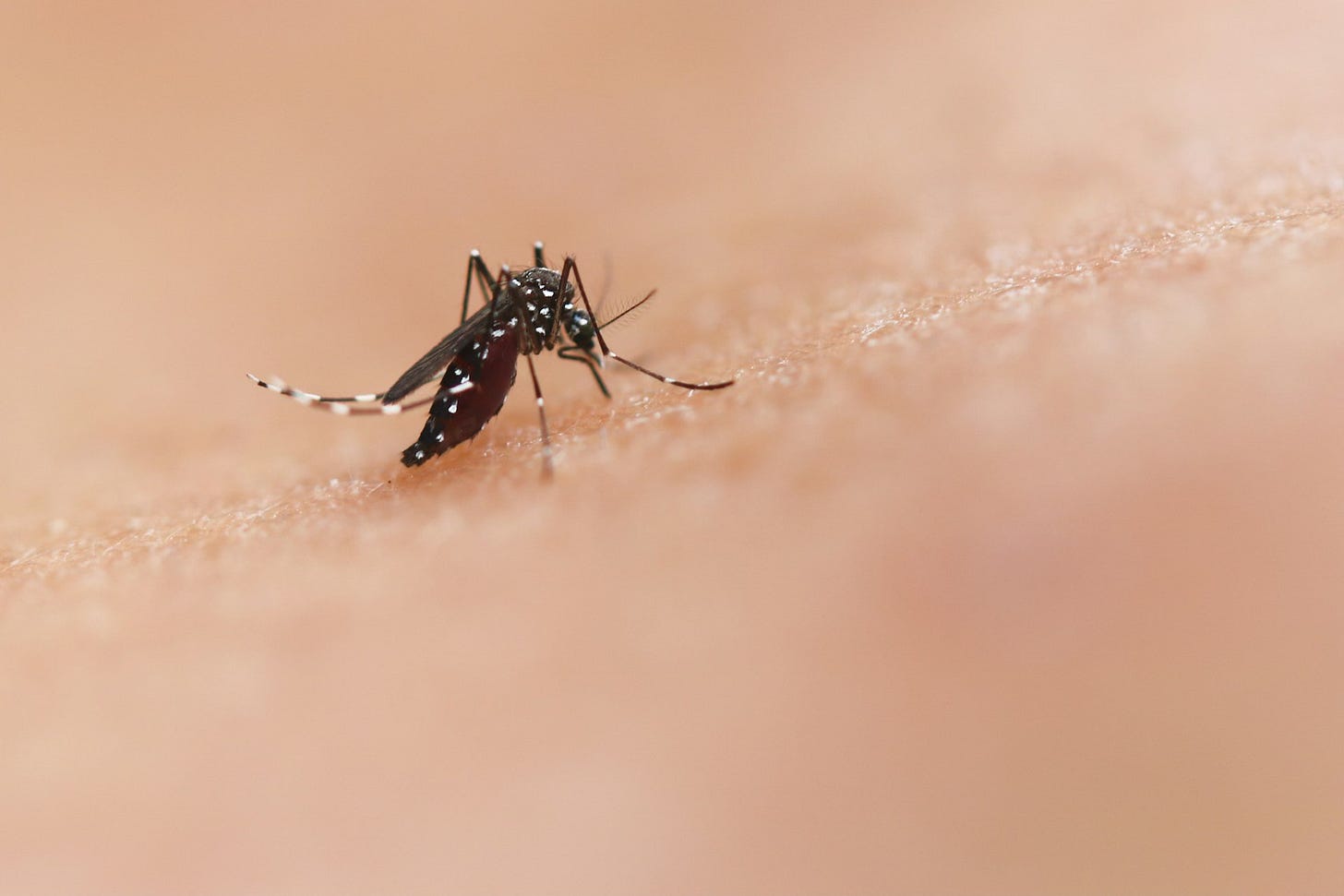Audacious Water Podcast: Mosquito-Borne Diseases & Climate Change, with Dawn Wesson
One takeaway: It’s okay to hate mosquitoes.
In Season Four of my Audacious Water podcast, I speak with ten diverse experts who intersect with how climate change is transforming America’s Heartland, which is becoming drier, hotter, saltier, wetter, and sicker. My goal was to deepen understanding of climate change and explore how to prepare and respond.
Why Dawn Wesson?
I wanted to learn more about how climate change is expanding the range of vector-borne diseases, so I reached out to Tulane University colleague Dawn Wesson, Ph.D. She is an associate professor in our School of Public Health and Tropical Medicine. Dawn has decades of experience studying mosquito-borne viruses like West Nile and Zika.
Turns out, here as spring bird migration is underway was a good time to have this conversation. Dawn explained that the complex relationships among bugs, birds and people and how we all move around as temperatures rise is affecting the northward expansion of tropical diseases. Experts like her are investigating innovative control strategies, including biological methods and emerging technologies, to reduce disease transmission in a warming world.
Key Topics We Discussed
How Climate Change is Expanding the Range of Mosquito-Borne Diseases: Dawn explains how rising temperatures and changing precipitation patterns are driving the spread of viruses like West Nile, Zika, and Dengue into new regions as mosquitoes expand their range.
The Role of Birds and Mosquitoes in Virus Transmission: John and Dawn discuss how birds act as primary hosts for diseases like West Nile, while mosquitoes serve as the transmission vector, making climate-driven shifts in bird migration and mosquito populations critical to understanding disease spread.
How Temperature Changes Affect Mosquito and Virus Survival: Dawn describes how mosquitoes are directly affected by temperature shifts—mild winters help them survive longer, while extreme heat can either shorten their lifespan or intensify virus transmission by concentrating birds and mosquitoes around shrinking water sources.
The Connection Between Green Infrastructure and Mosquito Breeding: As cities implement green infrastructure to manage flooding, Dawn highlights how features like rain gardens and detention basins can unintentionally create mosquito habitats by holding standing water that mosquitoes can use for breeding.
Vector Control Strategies: Chemical vs. Biological Methods: Dawn breaks down mosquito control approaches, explaining how chemical larvicides, mosquito-eating fish, and predatory mosquito species are used to manage populations and reduce disease risk .
Innovative Research on Mosquito Feeding & Virus Transmission: Dawn shares her latest work using 3D-printed synthetic vasculature to study how mosquitoes feed and transmit viruses, a tool that could improve interventions for vector-borne diseases.
Money Quotes from Dawn
“There are direct and indirect effects of climate change. One kind of obvious direct effect ... is temperate areas becoming warmer annually, and we can see northward or southward expansion of mosquito species that tend to be more tropical in distribution into more temperate areas.”
“When it gets really hot out ... and it becomes drier, water sources shrink. Both birds and mosquitoes need water. It’s sort of counterintuitive that drought-like conditions can actually drive viral amplification and infection of new hosts because everybody’s got to get to that water source, and so birds and mosquitoes become in closer contact.”
Links to Relevant Studies and Resources
Learn more about Dr. Dawn Wesson and her research on mosquito-borne diseases at Tulane University’s Department of Tropical Medicine.
See the CDC’s Vector-Borne Diseases Overview to learn more about diseases transmitted by vectors such as mosquitoes and ticks.
Learn how climate change is increasing the spread of mosquito and tick-borne diseases in the CDC’s report, Climate Change Increases Vector-Borne Diseases.
Dawn discusses the role of mosquito control districts in disease prevention. Learn more from the Louisiana Mosquito Control Association.
Further Reading
Dawn discusses the risks of climate change on vector-borne diseases. Read the CDC Report on Climate Change and Infectious Diseases.
Read about successful strategies of mosquito control using biological methods in an article from the journal Insects: “Biological Control of Mosquito Vectors: Past, Present, and Future”.




